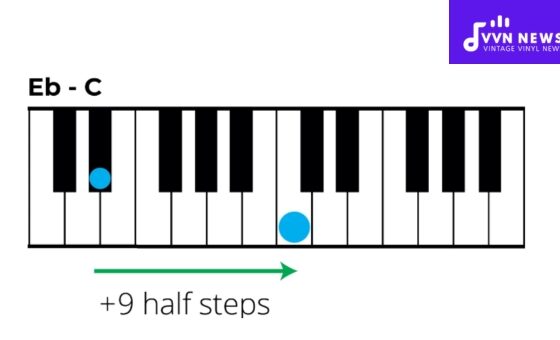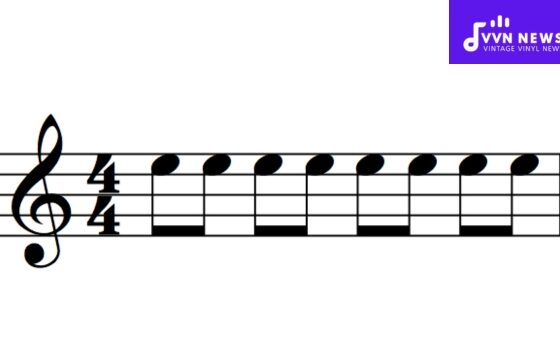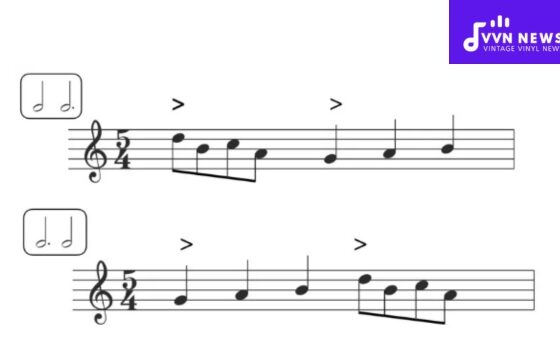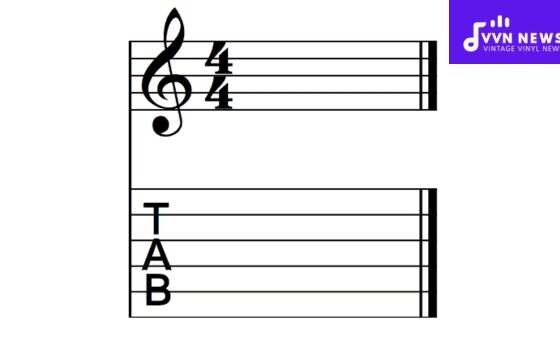Music is the universal language that transcends borders, cultures, and time. It has the power to inspire, heal, and transport us to different realms.
But what does it take to master this form of art? The answer is years of dedication and regular practice sessions with your instrument.
This brings up the question – what’s the best practice duration for your instrument?
Getting good at playing an instrument isn’t easy. It takes time, patience, and consistent effort.
One of the most common questions often asked by beginners or people who have just started learning a new musical instrument is about the duration of their daily practice.
Should you be practicing for hours on end every day or doing shorter sessions, which work just as well?
The idea is not about burning yourself out but finding the right balance that facilitates effective learning and progression in your musical journey.
Why Is Regular Practice Important?
Regular practice is essential for anyone looking to improve their skills and make progress on their musical journey.
It is the key to unlocking your potential, honing your technique, and truly mastering your instrument. Here are some reasons why regular practice is important:
Skill Development and Muscle Memory
Consistent practice helps develop muscle memory, enabling you to execute complex techniques effortlessly.
Your fingers will become more coordinated, your rhythm will improve, and your overall playing will become smoother over time.
Retention of Knowledge
Regular practice ensures that you retain what you have learned. It reinforces concepts, chords, scales, and other musical elements in your mind, preventing them from fading away over time.
Increasing Stamina
Like any physical activity, playing an instrument requires stamina. Regular practice allows you to gradually build endurance so you can play for longer periods without fatigue.
Improving Coordination and Timing
Playing an instrument involves multitasking—coordinating both hands, reading sheet music or tabs while executing the right technique, all while maintaining a steady beat or rhythm. Regular practice hones your coordination skills and improves your sense of timing.
Also Read: Instruments Of The Orchestra [Introduction To The Symphony]
Overcoming Challenges
With consistent practice, you can tackle challenging passages or techniques that may have seemed impossible at first.
Regular repetition allows you to break down difficult sections into smaller parts and gradually build up speed and accuracy.
Building Confidence
The more you practice, the more confident you become in your abilities. Regular practice helps build self-assurance as you witness tangible progress in your playing.
Expressing Your Musicality
Regularly practicing your instrument enables you to explore different musical styles and express yourself creatively through music.
Regular practice is crucial for every musician striving for improvement and growth. It aids in skill development, retention of knowledge, stamina building, and overall musicality.
By dedicating consistent time to practice, you’re setting yourself up for success and taking meaningful steps towards becoming a proficient and accomplished musician. So, grab your instrument, set a practice routine, and watch your skills soar.
How Long to Practice Your Instrument?

Determining how long to practice your instrument can be a challenge, but finding the right balance is pivotal for progress.
It’s important to remember that everyone is different, and what works for one person may not work for another.
There are some general guidelines and factors to consider when deciding how long to practice your instrument.
Skill Level Matters
The duration of practice sessions can vary depending on your skill level. For beginners, shorter sessions of around 15-30 minutes multiple times a day may be more beneficial than long sessions.
This allows time for rest and prevents burnout. Intermediate players can aim for 30-60-minute sessions once or twice a day. Advanced players typically practice 2-4 hours a day, but this can vary based on individual goals and commitments.
Frequency vs Duration
It’s better to have regular, consistent practice sessions rather than infrequent marathons. Allocating shorter durations daily or almost every day will yield better results than occasional long practices. Consistency is the key.
Quality over Quantity
The effectiveness of your practice sessions matters more than their length. Focus on the quality of your practice by setting specific goals, breaking down difficult sections into smaller parts, using targeted techniques, and employing mindful repetition.
Listening Skills
Listening plays a crucial role in music education and development. Incorporate active listening into your practice routine by studying recordings of professional musicians playing pieces you’re working on or exploring different styles of music.
Rest and Recovery
Remember to incorporate rest days into your practice schedule to give your mind and body time to recover and prevent burnout.
Taking regular breaks during longer practice sessions is also important for maintaining focus and preventing fatigue.
Also Read: How To Clean Your Flute [Keep Your Instrument Shiny & Sounding Great]
Setting Realistic Goals
Set achievable goals tailored to your individual needs and commitments. Breaking down larger goals into smaller milestones makes the path toward improvement more manageable.
These guidelines are meant as starting points, but the ideal practice duration will vary from person to person.
It’s essential to listen to your body and mind, adjusting your practice routine as needed. Experiment with different durations and assess how you progress during each session.
What’s the Optimal Duration for Intermediate Players?
Intermediate players, who have progressed beyond the beginner stage but are not yet at an advanced level, typically benefit from longer practice sessions.
Experts suggest that intermediate players should aim to practice for a minimum of 30 minutes per day. This duration allows for a substantial amount of focused practice time without becoming too overwhelming.
However, it’s important to note that longer practice sessions don’t necessarily equate to better results.
Quality should always be prioritized over quantity. Intermediate players should aim for focused and intentional practice sessions rather than mindless repetition.
To make the most out of your practice time as an intermediate player, consider following these guidelines:
- Warm-up first: Start your practice session with a warm-up routine to loosen your muscles and prepare your body for playing.
- Set specific goals: Identify the areas of your playing that need improvement and set specific goals for each practice session.
- Break it down: Divide your practice time into segments focusing on different techniques or pieces.
- Take breaks: Short breaks during your practice session can help maintain focus and prevent fatigue.
- Seek guidance: Consider working with a music teacher or mentor who can provide feedback and guidance on your progress.
As an intermediate player, it’s important to remember that consistent, regular practice is key to improvement.
Strive to develop a routine that works best for you and stay committed to honing your skills. With time and dedication, you’ll continue progressing towards becoming an advanced musician.
How Do Advanced Students Balance Intensity and Duration?

For advanced students, finding the right balance between intensity and duration of practice becomes crucial.
These individuals have already developed a solid foundation of skills and are now focused on refining their technique, expanding their repertoire, and pushing their boundaries.
Here are some key considerations for advanced musicians in balancing intensity and duration:
Set specific goals
Advanced students should identify specific goals they want to achieve during their practice sessions.
This could involve mastering a challenging piece, improving improvisational skills, or working on technical exercises. Setting clear goals helps in creating focused practice sessions.
Divide practice time
To balance intensity and duration, advanced musicians may opt to divide their practice time into different segments.
For example, dedicating one session to technical exercises, another to repertoire building, and another to creative exploration.
This allows them to focus intensively on specific areas while also maintaining a varied routine.
Also Read: Guide To Applying EQ Cheat Sheet On Various Instruments 2025
Alternate between intense and relaxed sessions
Advanced musicians often find it useful to alternate between intense practice sessions that challenge their skills and relaxed sessions that allow for creativity and experimentation.
This helps in preventing burnout while still maintaining progress.
Utilize efficient practice methods
As advanced students have limited time available due to other commitments, maximizing the efficiency of practice becomes paramount. This involves using techniques such as chunking (breaking down challenging passages into smaller sections), deliberate slow practice, visualization, recording oneself, and seeking feedback from teachers or peers.
Incorporate mental rehearsal
Advanced students can benefit from mental rehearsal techniques where they visualize themselves playing a piece flawlessly or executing a difficult passage with ease.
Research has shown that mental rehearsal can significantly enhance performance quality.
Advanced musicians strike a delicate balance by setting specific goals, dividing practice time wisely, alternating intensity levels, utilizing efficient methods, and incorporating mental rehearsal techniques.
By finding this equilibrium, they continue to improve their skills and achieve higher levels of musical proficiency.
Benefits of Setting Practice Sessions
Setting up regular practice sessions can offer numerous benefits for musicians of all skill levels. Here are some key advantages that come with establishing a consistent practice routine:
- Improvement in Technique: Regular practice allows you to focus on specific technical aspects of playing your instrument. By dedicating time to work on finger dexterity, coordination, and control, you can gradually enhance your technique and become a more accomplished player.
- Memory Retention: Repetition is crucial when it comes to committing musical pieces to memory. By practicing regularly, you reinforce muscle memory and train your brain to recall sequences effortlessly during performances.
- Enhanced Musicianship: Consistent practice helps develop a deeper understanding of music theory, composition, and interpretation. This knowledge contributes to more expressiveness and creativity in your playing.
- Increased Confidence: As you progress through regular practice, you’ll notice improvements in your skills, which will boost your confidence as a musician. This confidence will translate into better performances and greater enjoyment of playing for yourself and others.
- Time Management Skills: Setting aside specific time for practice encourages discipline and effective time management skills. Learning to prioritize your musical pursuits will spill over into other areas of your life as well.
- Goal Achievement: Establishing regular practice sessions aids in setting achievable goals and tracking progress. Breaking down larger objectives into smaller, manageable tasks helps keep motivation high while steadily advancing toward mastery.
By taking advantage of these benefits and implementing regular practice sessions tailored to your individual needs, you can maximize your musical potential and truly excel on your instrument.
Also Read: Instrument Miking Techniques To Capture The Best Sound 2025
FAQs on How Long to Practice Your Instrument
Is it better to practice for a longer duration or have shorter, more focused practice sessions?
Quality over quantity is vital. It’s better to have shorter but focused practice sessions rather than long hours of mindless repetition.
How many hours a day should an intermediate musician practice?
As an intermediate musician, aim for at least 30 minutes to an hour of dedicated practice daily. Consistency is more important than long hours.
For advanced players, should the duration or intensity of practice take priority?
Balance is crucial for advanced players. Focus on maintaining intensity and efficiency during your practice sessions, while also allowing yourself enough time to cover the necessary material.
Can I split my practice time throughout the day?
Yes, splitting your practice time into smaller sessions can be effective. However, ensure that each session is dedicated and focused to maximize the benefits.
What are the benefits of setting specific practice goals?
Setting goals helps provide direction and structure to your practice sessions. It allows you to track progress and maintain motivation as you work towards achieving milestones in your musical journey.
Conclusion
The amount of time you should devote to practicing your instrument will vary depending on your goals, skill level, and availability.
It’s important to find a balance between quality and quantity, focusing on efficient practice sessions rather than sheer duration.
Regular practice is crucial for improvement and progress, and setting specific practice goals can help keep you motivated.
Remember to listen to your body and give yourself breaks when needed. Ultimately, the key is consistency and dedication in your musical journey.
So pick up that instrument, set some practice goals, and enjoy the process of mastering your craft!








